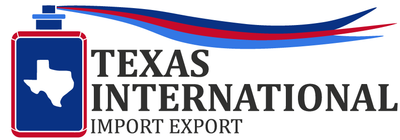The strategic alliance of Coach's parent company with Michael Kors, Versace, and Jimmy Choo will forge a unique landscape for luxury fragrance business owners.
In a move that will resonate through the aisles of your perfume busineses, Tapestry, the parent company of renowned brands such as Coach, Kate Spade, and Stuart Weitzman, is set to acquire Capri Holdings. This $8.5 billion deal brings together some of the leading fashion houses, including Michael Kors, Versace, and Jimmy Choo, each with their prestigious line of fragrances.
As an owner of a company specializing in designer perfumes, this merger heralds new opportunities and challenges in a market that's closely aligned with fashion trends and brand alliances.
The union will create a potent American luxury fashion conglomerate, poised to face off against European stalwarts like LVMH and Kering, renowned for their own fragrance collections, including Louis Vuitton, Dior, Gucci, and Balenciaga.
What does this mean for your business?
- Expanded Portfolio: With Tapestry's acquisition of Capri, six major luxury brands come under one umbrella. It may lead to innovative cross-brand collaborations and exclusive perfume collections, enriching your shelves with new aromatic offerings. Perhaps new licensing deals, too!
- Strategic Market Positioning: Tapestry's CEO, Joanne Crevoiserat, emphasizes that the deal enables "a new powerful global luxury house." It could influence the pricing, marketing, and distribution strategies of these fragrances, directly impacting your retail decisions.
- Global Reach and Local Implications: The merger is expected to spread across 75 countries, potentially modifying the international distribution of these designer fragrances. It's a crucial moment to align with this new global vision, ensuring that your inventory and marketing strategies resonate with the evolving brand dynamics.
- Economic Considerations: The acquisition comes at a time of luxury market slowdown, according to Neil Saunders of GlobalData. The cautious spending trend among high-end consumers may translate into strategic adjustments in the fragrance sector. Staying attuned to these market shifts will be key to navigating the post-acquisition landscape.
- Competitive Landscape: Although still smaller in revenue compared to European giants like LVMH and Kering, the merger creates a new player with unique strengths. Aligning with this emerging powerhouse may offer competitive advantages in securing exclusive fragrance deals or promotional support.
The fragrance of change is in the air. As someone at the helm of a company retailing designer perfumes, this merger invites you to embrace a refreshed perspective on luxury brands. It's a moment to reevaluate your relationships with these brands, considering new collaboration opportunities, pricing strategies, and customer engagement plans.
This industry-altering acquisition may very well shape the future fragrance offerings and partnerships available to your business. Stay aligned with these shifting scents of luxury, and you may find new pathways to captivate your clientele and grow your enterprise.

